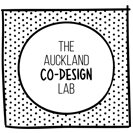A Kind (And Sustainable) Food System
By The Lab Team
@ The Papatoetoe Food Hub
COVID19 has put the spotlight on a range of wellbeing issues. This blog is the first in a series of reflections and projections from the Lab and the teams that we work with about equity and ‘systems health’ in the context of COVID19.
The context
The Lab team works closely alongside the The Southern Initiative Healthy Families team. The Food Security and Sovereignty work of the TSI Healthy Families is focussed on solving a singular problem - that our communities have bad access to good food, and good access to bad food.
This is not just a problem of nutrition - it is also a problem of equity, of planning, and of culture. Neighbourhoods with people in lower economic brackets are often food deserts, an area where it is hard to buy affordable or good quality fresh food. These neighbourhoods and the people who live in them pay the cost of a market-driven economy without seeing the benefits - there are per capita more fast food outlets in Ōtara than in Remuera, for example.
The approach that the TSI Healthy families takes to understand how things might be shifted is to use the six conditions of systems change as a lens and as a guide. This helps both to describe where the systems change effort lies, as well as to show where effort needs to focus.
Covid-19 and observations
Covid-19 has highlighted the challenges around food security and sovereignty. Queues at supermarkets have demonstrated the dependence on the commercial market for food. There has been an increased interest in home gardening, and some shops were seen to have run out of seedlings and seed packets. Prior to COVID19, one of the Healthy Families initiatives had been to work with Auckland Council ECEs - Kauri Kids on provision of healthy food. Families had reported decreased financial and emotional stress because children were able to access healthy kai via the child care centres. These families and others like them are likely to be under significant stress during the period of the lockdown, as options for healthy and affordable food access is limited.
There appears to be an increased openness to discussions about the need for food security and sovereignty, both in community circles as well as within the Auckland Council family of organisations. The crisis has highlighted the critical role of food, emphasising the potential for food as a catalyst for systems change. There is increased interest at a national Healthy Families level in the Good Food Roadmap, a strategy document that expresses the vision of food security and sovereignty and an action plan to get there.
While large food-based businesses will potentially ride out the period of the lockdown and a post-lockdown or post-COVID19 world, small food businesses do not all have the financial resilience to make it through. The work with The Kitchen Project and the Papatoetoe Food Hub is highlighting this challenge. Simultaneously, we are seeing the challenges of responding to increased demand faced by the Papatoetoe New World Supermarket, who have been key partners in the Papatoetoe Food Hub upcycled food scheme .
Questions we are asking
For COVID19 to be an opportunity to increase food security and sovereignty (rather than compound it) the team is being really intentional about exploring and prioritising the following questions:
How do we continue to build (policies, practices, resource flows, relationships, power structures, mental models) community food resilience, based on neighbourhood solidarity?
How do we use our access to government systems (policies, practices, resource flows, relationships, power structures, mental models) to support community food enterprises in a post-lockdown/recovery period?
How do we support our partners in community and government to look beyond the immediate challenge, and to build a resilient food system that does not reinforce a dependency model?

